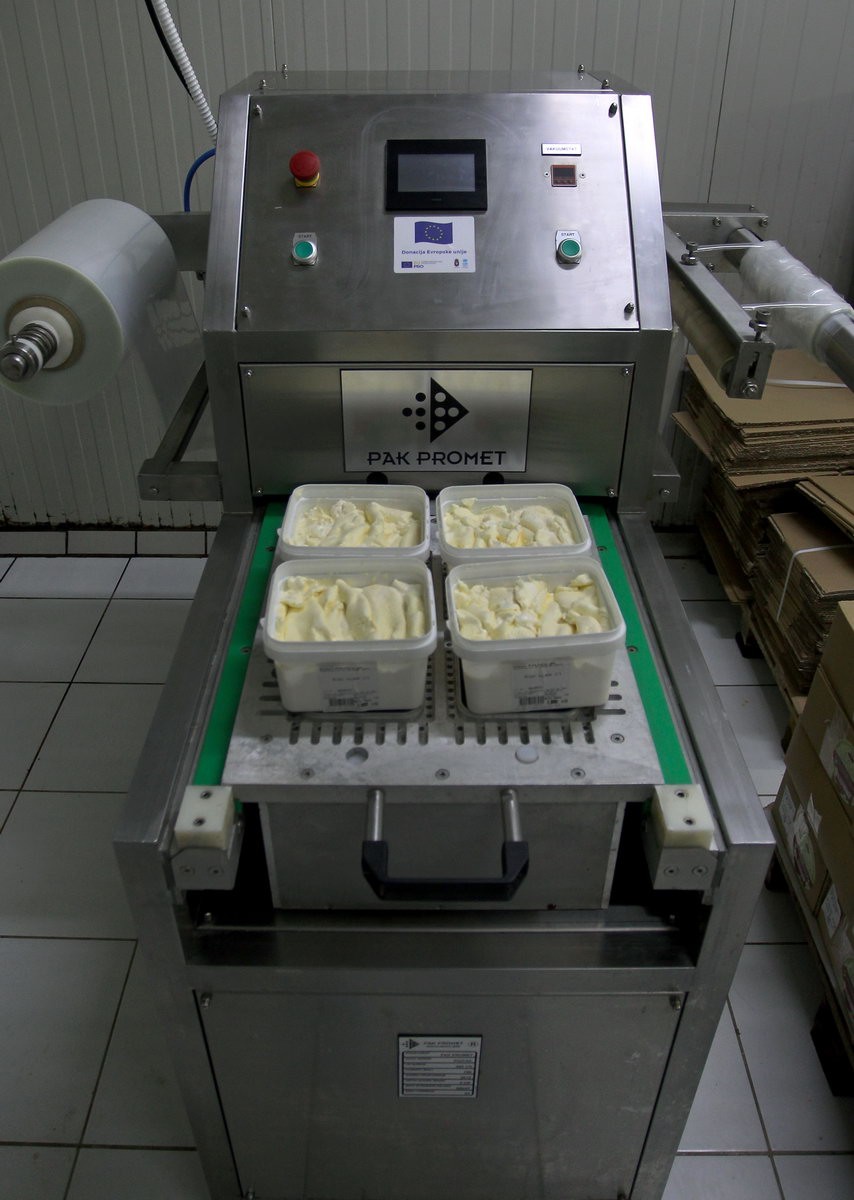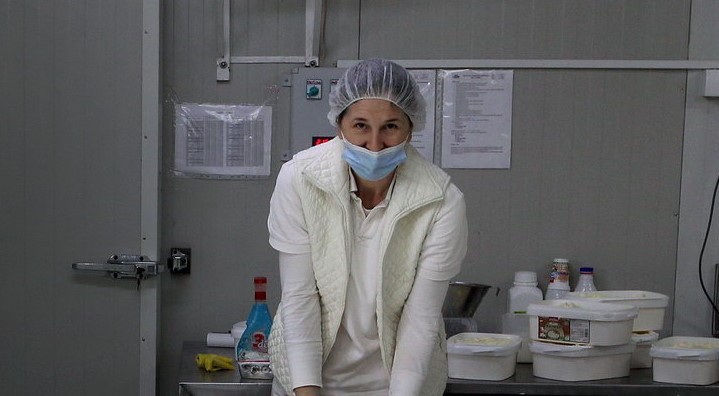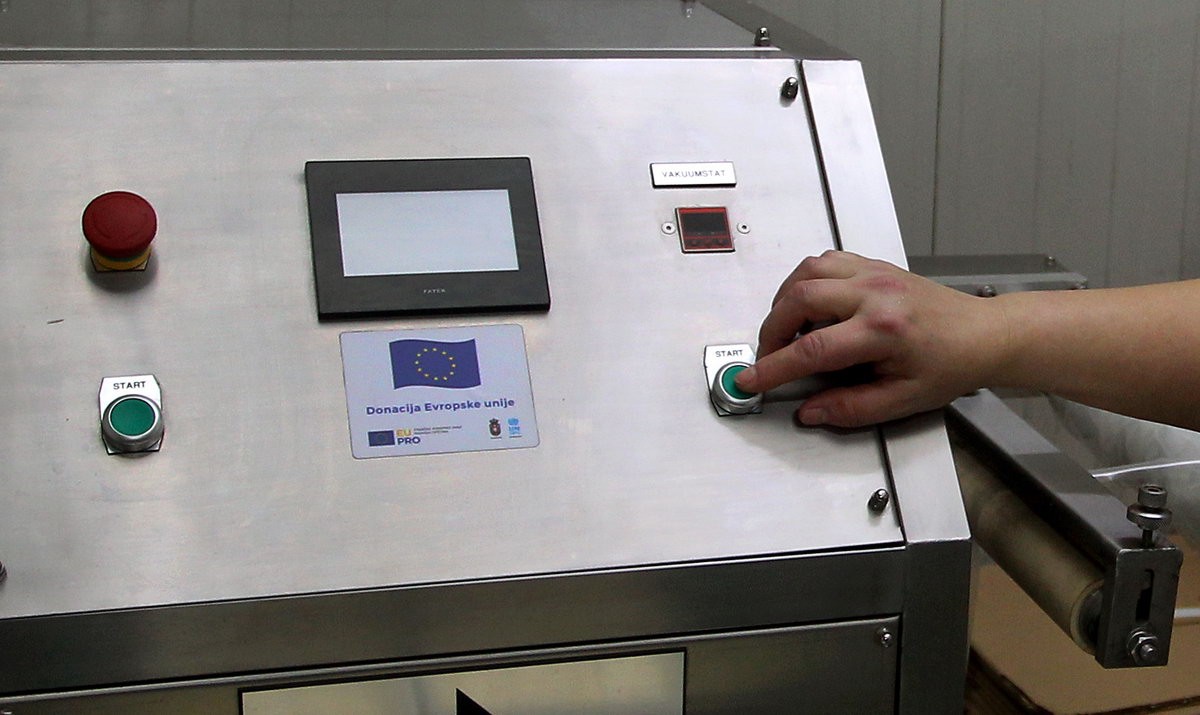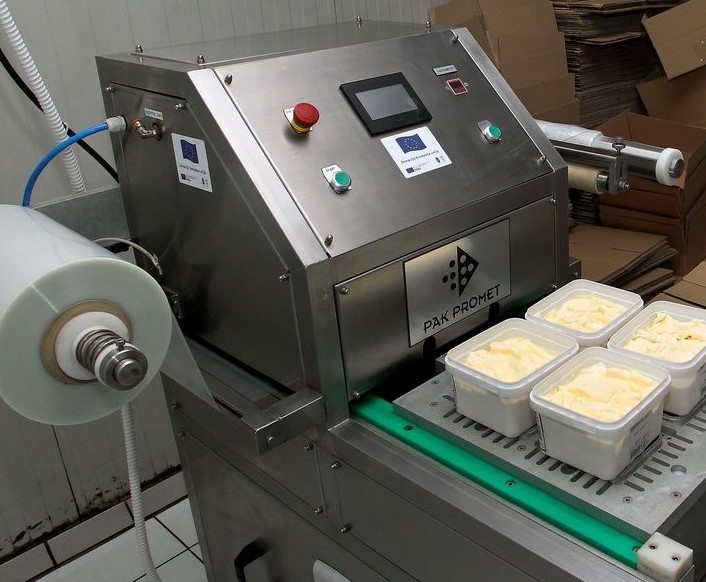Bukovče, 17 February 2021
Traditional Dairy Products as the Key to Success
Serbia’s dairy industry boasts a long tradition and is the second most important agricultural sector in the country. Serbia produces 1.5 billion litres of milk every year, while annual per capita consumption of milk stands at around 200 litres. As impressive as these figures may be, there is a great need to stimulate the development of this sector. About 850 million liters enter the processing capacities - dairies, while the remaining part goes to production in households, and is sold through green markets, direct sales to catering facilities and through own consumption.[1] This branch of industry has huge potential and small producers buying milk from local farms can substantially contribute to its development. With European Union (EU) support extended through the EU PRO Programme, the dairy enterprise Bukovče has shown how a dairy business tapping into local potential can thrive.
In early 2016, the Mihajlović family, which owns a dairy going by the same name, decided to invest its knowledge and experience and expand its production by launching a new facility in the village of Bukovče near Jagodina. “We wanted to expand production and offer the people in our community the best – kajmak and traditional full-cream white cheese, the so-called cheese underneath the kajmak. Since we didn’t have room in our dairy, in Paraćin we rented the facility of the former dairy in Bukovče and started producing them there. All we needed to do was bring the milk-processing machines. On the other hand, we started buying milk from the local farmers from the very first day, which was an ideal complement to our dairy in Paraćin,“ says Ljiljana Nešić, the Bukovče Financial Manager.
The development of the Bukovče dairy was based on the conviction that the traditional dairy industry could be preserved only if autochthonous products are produced. The initial idea was to start by producing cheese and kajmak and introduce new products. “Since we lacked the funds to buy all the equipment, we started out by packaging the cheese in four-kilo buckets, which we could only sell to stores in bulk. The stores often returned the products, which are sensitive to heat and light, back to us. We wanted to find a way to improve safety management and ensure quality in the distribution chain.” Ljiljana went on to say that she was constantly researching business development subsidies. She found various ones on offer, but, given her experience, she was extremely wary and thoroughly analysed the public calls for proposals. She finally found a Programme instilling confidence that it would facilitate the further development of the dairy. “Our experience with the EU PRO Programme, through which the EU supports local development, is exceptionally positive. Even before we applied, I attended their free training in business plan development within the promotion of the Call for Proposals in Kragujevac. We received additional support after the training, mentoring and help in filling all the forms. That was the crucial difference between what EU PRO and other similar co-funding programmes were offering,” Ljiljana concluded.
Bukovče used the grant to buy the machine they needed to pack their products in smaller packaging. This also improved their production process and allowed them to offer their products at more competitive prices which, in turn, led to the expansion of their business. They hired another six workers, ensured their market competitiveness and achieved all their business plan goals. “After we bought the packaging machine, we succeeded in concluding a contract with a major supermarket chain doing business across Serbia, so our products found their way to the dining tables of consumers in those cities. Of course, our initial market, restaurants and small dairy shops in the green markets, are still of strategic importance to us, because we’re here to support each other.”
The importance of the local support they need is illustrated also by the fact that they buy milk from nearly 100 farms in the Pomoravski District, which they have additionally trained in improving their raw material. “We organised a number of training activities for our suppliers, providing them with information on how to boost cattle feeding and improve the sanitary conditions, as well as how to properly distribute the milk. We also familiarised them with the new legal framework on milk quality, which will apply once Serbia joins the EU,” Ljiljana emphasised, adding “We’re still empowering them to ensure they maintain the high milk production standards. This is vital for small farms with two or three milk-giving cows, because, they, too, will remain competitive although they are not major suppliers.”
Bukovče has for years been assisting the Association of Parents of Children with Disabilities. Most of the funds the dairy donated to the Association within its corporate social responsibility activity required under EU PRO’s terms and conditions was spent on a new kitchen. “We have to think about our children all year round, that’s why our activities always focus on them and we try to donate them products or funds and provide them with adequate help whenever they need it,” Ljiljana concludes.
This is just one of the local entrepreneurial stories, whose success was facilitated by over 4.3 million of support the EU has allocated through the EU PRO Programme. In cooperation with the Ministry of European Integration, the support has been provided to over 200 enterprises, which bought new equipment, thanks to which they improved their production and market potential and contributed to an increase in employment at the local level.
Through the activities of the EU PRO programme, the European Union contributes to the more balanced socio-economic development of Serbia with a total of 25 million Euros. The programme aims to contribute to increasing the competitiveness of micro and small enterprises, improving the business environment and strengthening social cohesion in 99 local self-government units, in two regions: the Region of Šumadija and Western Serbia and the Region of Southern and Eastern Serbia. The activities in the field are implemented by UNOPS.
[1] Source: Serbian Chamber of Commerce






